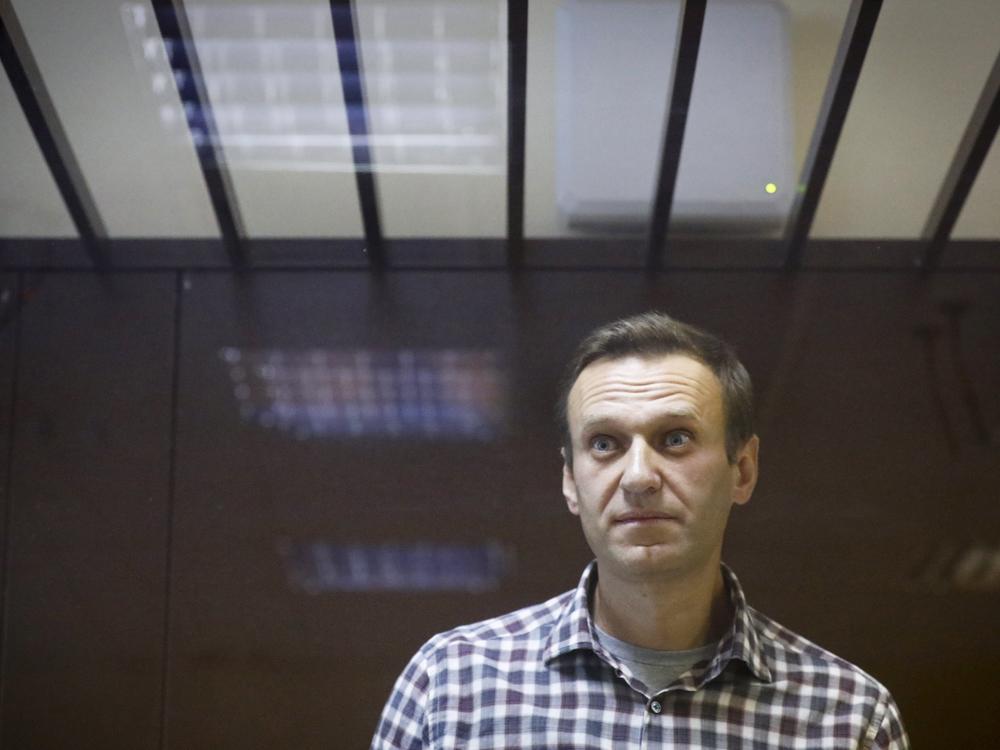Section Branding
Header Content
Jailed Russian opposition leader Alexei Navalny is ill, perhaps poisoned, an aide says
Primary Content
MOSCOW — Imprisoned Russian opposition leader Alexei Navalny is in failing health because of a new suspected poisoning and is back in a punishment cell after a few days in regular confinement, a spokeswoman said Wednesday.
Anna Veduta, a Washington, D.C.-based vice president of Navalny's Anti-Corruption Foundation, told The Associated Press the 46-year-old Navalny fell ill last Friday when he was let out of the punishment cell and put in a conventional cell. He had lost about 18 pounds over the past 15 days. On Monday, Navalny wrote on Twitter, he was put back in a punishment cell for another 15-day term.
An ambulance was called early Saturday because of acute stomach pains but Navalny received no diagnosis, one of his lawyers, Vadim Kobzev, wrote on Twitter after visiting him in prison.
"We believe he is slowly being administered low doses of poison" in pills he is given without identification, Veduta said.
A video documentary about Navalny won an Oscar last month. The documentary portrays Navalny's career of fighting official corruption, his near-fatal poisoning with a nerve agent in 2020 that he blames on the Kremlin, his five-month recuperation in Germany and his 2021 return to Moscow, where he was taken into custody. He was later sentenced to 2 1/2 years in prison and last year was convicted of other charges and given another nine-year term.
Navalny has faced unrelenting pressure from Russian authorities, and has been in and out of isolation in a tiny punishment cell. He is allowed to write letters or have his lawyers visit occasionally.
German government spokesperson Christiane Hoffmann said Wednesday that Germany took note of reports about Navalny's worsening health "with great concern." She added that Berlin wants "the inhuman treatment that he is apparently suffering in prison to be lifted," and wants Russian authorities to ensure he gets access to medical treatment and is released.
Copyright 2023 NPR. To see more, visit https://www.npr.org.

